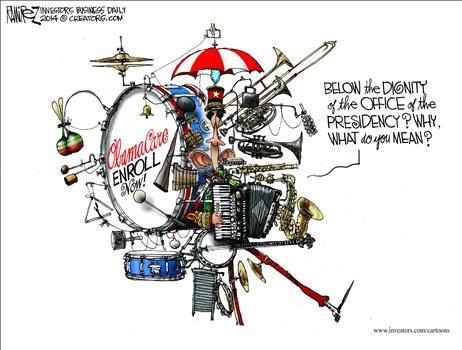"Outlining the implications of Obamacare, the report predicts that employers will continue to cut workers’ hours in order to avoid providing mandated coverage for full time employees. Moreover, it observes, “if employers follow the incentives in the law, they will push families onto the exchanges to buy coverage. This will force low-wage service industry employees to spend $2.00, $3.00 or even $5.00 an hour of their pay to buy similar coverage.” Perhaps of greatest concern to UNITE HERE, the ACA threatens to ‘strangle’ competition and place union-created health care plans into a “death spiral” because participants in those plans, i.e. the union’s members, will not receive subsidies as many who buy coverage through the health exchanges will."
http://townhall.com/tipsheet/christi...f-law-n1811437
.
Originally Posted by IIFFOFRDB
Marco, is that you? naw, its just Iffie ..
http://www.politifact.com/truth-o-me...ses-say-theyl/
Small businesses make up:
99.7 percent of U.S. employer firms,
64 percent of net new private-sector jobs, 49.2 percent of private-sector employment, 42.9 percent of private-sector payroll,
46 percent of private-sector output, 43 percent of high-tech employment,
98 percent of firms exporting goods
